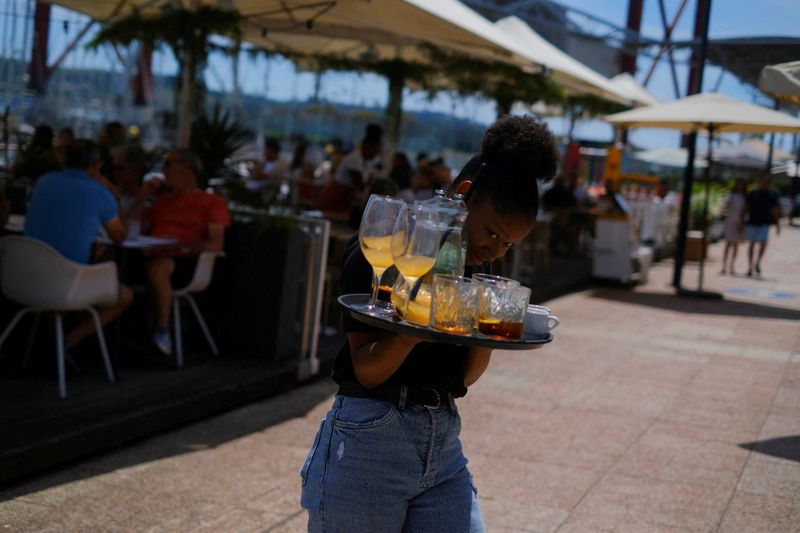By Sergio Goncalves and Mariana Azevedo
(Reuters) - Portugal's economy lost momentum in the second quarter after a very strong start to the year, with inflation at a three-decade high weighing on private consumption, official data showed on Friday.
The National Statistics Institute (INE) said in its flash estimate that gross domestic product (GDP) contracted 0.2% in the second quarter of 2022 from the previous three-month period, when it grew 2.5%, due to "the negative contribution of domestic demand" - private consumption and investment - to GDP.
Still, net exports of services, including the key tourism sector that represented almost 15% of GDP before the pandemic, increased.
INE said the economy expanded 6.9% from the same period a year earlier, well below the 11.8% recorded in the preceding quarter.
Filipe Garcia, economist at Informacao de Mercados Financeiros consultants, attributed the quarterly contraction in consumption to soaring food and energy costs after Russia's invasion of Ukraine.
"This not only reduces the confidence of the Portuguese, but also forces them to change their shopping basket," he said.
The INE separately said that consumer prices jumped 9.1% year on year in July, the fastest pace since November 1992 and up from 8.7% in June. Core inflation, which strips out volatile food and energy prices, rose 6.2%.
The tourism industry's rebound from the pandemic will likely offset the impact of higher prices and the economy is still likely to expand significantly over the year, Garcia said.

"Despite everything, the Portuguese economy continues to be in good shape this year, consolidating its position as one of the fastest growing in Europe," he said.
Last month, the Bank of Portugal raised its growth outlook for this year to 6.3%, up from 4.9% predicted in March, buoyed by tourism recovering to near pre-pandemic levels and still solid private consumption growth.